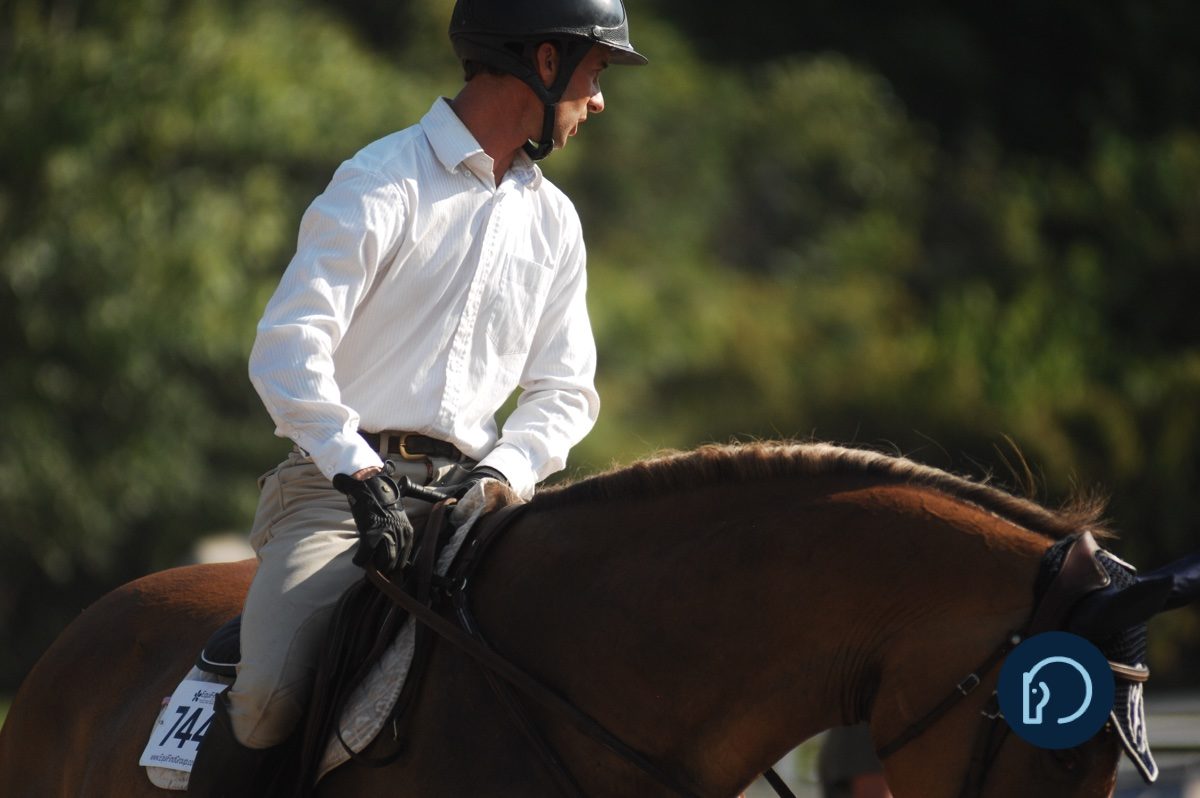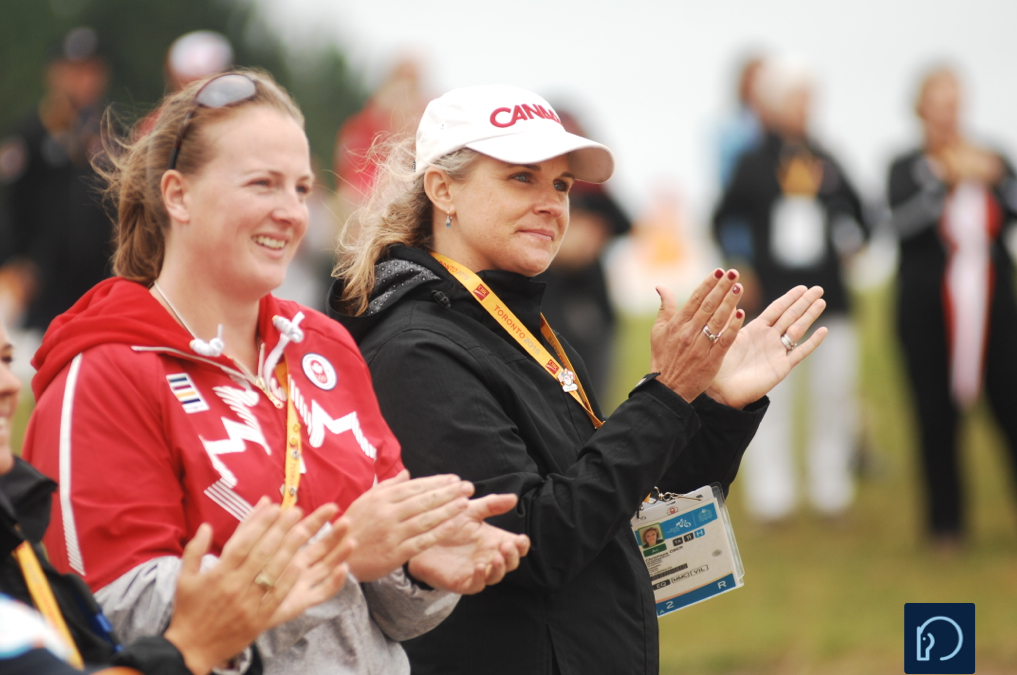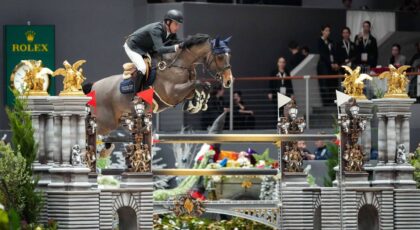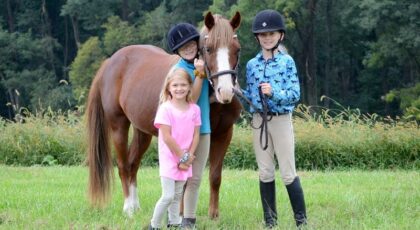Disclaimer: I have written this article with a focus on show jumping and my examples reflect this. However, the content holds true for all equestrian disciplines.
A great trainer will enthusiastically teach their students about horsemanship and provide them with the environment needed to accomplish their goals.
It has always been my belief that if an amateur rider is having fun, improving their skill set and their horse is receiving great care, they should continue with the same trainer.
However, when one of these three factors disappears, and attempts to reconcile the issue have not worked, it then becomes time to part ways. The decision to leave a trainer is not an easy one, and the selection of a new trainer can be a daunting process.
In today’s hunter/jumper community, there are more trainers than ever before. Over three consecutive weeks at an ‘A-level’ show grounds in Ontario (Canada) this summer, for instance, 169 different trainers were in attendance. Of those 169 trainers, some had assistant trainers that work alongside them, which likely brings the total number of trainers closer to 190 over that period. Although this example is for one circuit (Ontario), the same trend is evident throughout North America, highlighting the wide range of possibilities for choosing your next trainer.
With all of these available options, how does a student evaluate trainers and decide which program is best for them? Below, I will go through a number of important considerations when choosing a trainer.
1. Do they have the education required?

The first consideration when choosing a trainer is their equestrian education. Make no mistake; the education they have received in the past will significantly influence their coaching philosophy.
The knowledge gained from years of being coached, working with and studying under their mentors will influence how they manage their students and their horses. Ideally, you want to find a trainer who has worked with many accomplished and reputable trainers for extended periods of time, as this ensures that they have performed within a successful program.
It is important to avoid a trainer with limited knowledge and education, as they lack the experience to identify and solve issues in a timely manner. This limited experience can ultimately lead to stalled development of horse and rider, increased risk of injury, psychological frustration, etc.
Also, you must remember that it is highly unlikely that a trainer who has never been exposed to a high-level program will have the knowledge and skills required to coach their athletes to a high level.
Thoughts to consider include:
- Who has the trainer been coached by or apprenticed with?
- Have they worked with individuals with a proven record of success and impressive results?
- Do they have further education outside of the horse community that will complement their ability to teach you (coaching certifications, college or university degrees).
2. Do they have a proven history of producing and improving riders?

If you are going to commission an artist to paint an image for you, most people would ask to see examples of past paintings that they have completed. This ensures that their painting skills will match your expectations.
Similarly, you should evaluate a trainer based on their past work. If a trainer has been able to improve the riding ability of a number of students over an extended period of time, they are likely a safe bet to work with.
Conversely, I often see amateurs make the move to a trainer who is a very accomplished rider himself or herself, but has limited productivity as a trainer. In these situations, there is typically a honeymoon phase of a year or two, followed by frustration for the student when their riding ability does not improve. Ultimately, the rider becomes unhappy and their riding ability plateaus, leading to their eventual separation from the trainer.
Thoughts to consider include:
- What have their past or present students accomplished?
- Do all of their students tend to improve each year?
- Have they found and developed quality horses for their students?
- If they are also riders, do they have consistent and quality results?
3. Do they have a trustworthy network around them?

Another important aspect of a trainer is their network. A successful trainer will have a large and skilled network of experts around them that they will use to help solve any issues that may arise (e.g. questions about how to train a horse, competition strategy, therapeutic management, etc.). This network is composed of other trainers, horse dealers, farriers, veterinarians, physiotherapists and so on.
It is always a warning sign when a trainer does not have a supportive and reputable group of professionals that they interact with and can rely on.
Thoughts to consider include:
- Do they have a network of other trainers that they interact with regularly?
- Do they have a strong network of veterinarians, farriers, therapists, horse dealers and so on that will help them solve problems that may arise?
- Does their network speak highly of them and recommend them to others? Do industry professionals outside of their network have positive things to say about them?
4. Do your goals and expectations align with theirs?

Each trainer will have their own coaching philosophy and their own idea of how students fit into their program. Make sure that your expectations are similar to those held by your prospective trainer when you decide to make a move.
For example, there are some trainers that feel they need to ride your horse a few times a month to better understand your horses so that they can effectively coach you. However, if you are a student that wants to do all of the riding with your horse, choosing the above mentioned trainer will likely end up causing disagreements.
Furthermore, depending on the stage of your career, you will need a trainer who complements your needs. A young rider will need a trainer to take more control with the program, whereas an advanced amateur will need a mentor to guide them without being too invasive.
Thoughts to consider include:
- Do you and the trainer have similar goals and expectations for what you and your horse are aiming to accomplish?
- Does the level of horse care align with your requirements?
- Watch how the trainer interacts with their clients at shows. Do they treat their current clients how you would want to be treated and coached?
5. Do they have the proper infrastructure to allow you to progress?

In order to realize your full potential, the trainer needs to have the correct resources at their disposal. If possible, try to schedule a visit to a prospective trainer’s home facility. Take note of the facility, the equipment they own, the staff they have, and so on. Limitations in any of these areas could hinder the development of you and your horse.
Thought to consider include:
- Do they have the required facilities already in place?
- Do they have high quality staff to care for your horse?
- Do they have all equipment that is required for you to train and compete (e.g. horse trailer, therapy products, show staff, etc.)?
6. Do they have a rider?

Most amateurs will require an experienced rider to get on their horse occasionally. It is important that your new trainer has a rider that can accomplish this task and provide your horse with constructive training inputs. Conversely, if the rider used by your trainer is of poor quality, this input will become destructive to your progression, ultimately halting your development.
Thought to consider include:
- Does this rider have a good reputation among his/her peers?
- Does this rider have strong results on a number of different types of horses?
- Does this rider have a style that can compliment your style?
Summary
I hope that the above information will be helpful for anyone looking for his or her next trainer. Of course, the key to finding the correct trainer lies in doing your homework and thoroughly researching what each trainer has to offer. Below are two ‘bonus’ hints that will also be helpful when selecting a coach. For me, both of these hints are very important and correlate well with the quality of the trainer.
- Talk to anyone who has ridden with or worked for him or her. Grooms can be a great source of information as they are exposed to aspects of the program (i.e. management of the horses) that clients and outsiders do not get to see.
- Stay away from trainers who have overly complex/long-winded explanations of how to ride. The best coaches are the ones who can explain complex topics in simple terms.
 About the Author
About the Author
Dr. Tim Worden has worked as a sport scientist with numerous FEI-level show jumping riders. He has a PhD in biomechanics and specializes in applying human high-performance training techniques to horses.




 September 18, 2017
September 18, 2017 




























